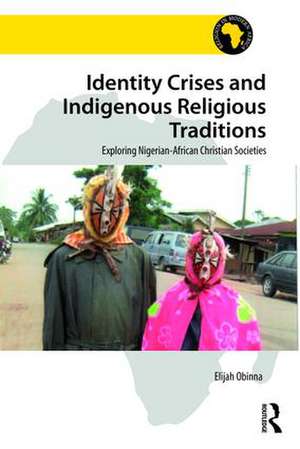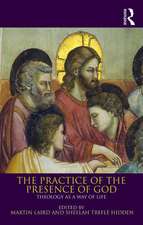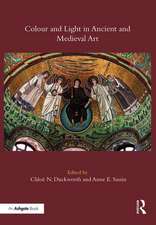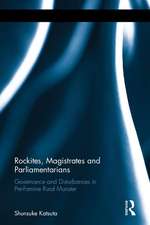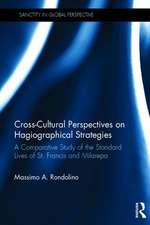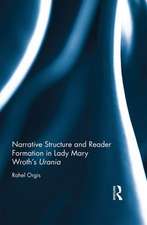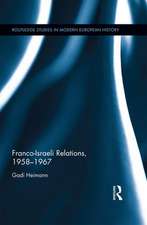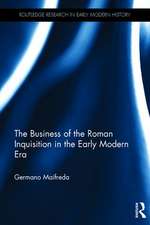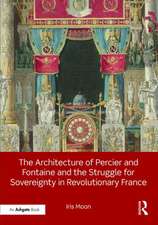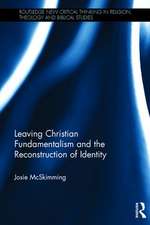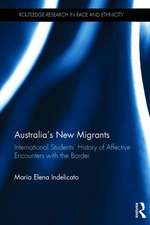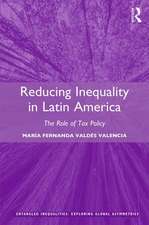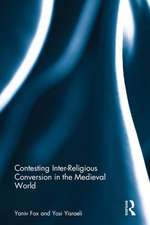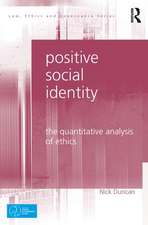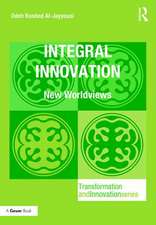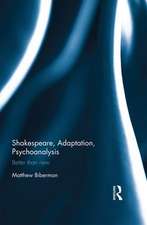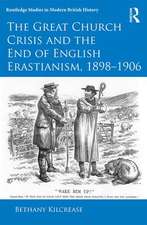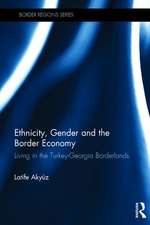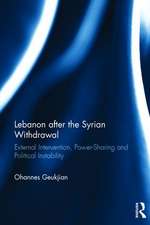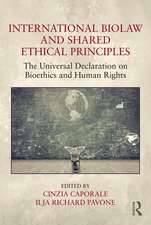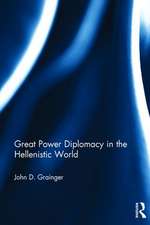Identity Crises and Indigenous Religious Traditions: Exploring Nigerian-African Christian Societies: Religion in Modern Africa
Autor Elijah Obinnaen Limba Engleză Hardback – 24 feb 2017
Identifying the power dynamic, identity, role and influence of indigenous religions on Christians and the Ogo society, this book reveals the limited interactions between many Christians and members of the Ogo society. Questions explored include: what makes the Ogo society an integral part of the socio-religious life of Amasiri and what powers and identity does it confer on the initiates; how is the PCN within Amasiri responding to the Ogo society through its religious practices such as baptism, confirmation, local auxiliary ministries and organisational structure; and how does the understanding and application of conversion within the PCN impact on its members’ response to the Ogo society? Demonstrating how complex religious identities and practices of Nigerian-African Christians can balance mission-influenced Christianity with indigenous religious traditions and identities, this book recognises the importance of appropriating the powers of indigenous cultures, ingenuity and creativity in the construction and preservation of community identities. As such, it will be of keen interest to scholars of Christian theology, indigenous religious practice and African lived religion.
| Toate formatele și edițiile | Preț | Express |
|---|---|---|
| Paperback (1) | 383.13 lei 6-8 săpt. | |
| Taylor & Francis – 12 dec 2019 | 383.13 lei 6-8 săpt. | |
| Hardback (1) | 1038.87 lei 6-8 săpt. | |
| Taylor & Francis – 24 feb 2017 | 1038.87 lei 6-8 săpt. |
Preț: 1038.87 lei
Preț vechi: 1266.91 lei
-18% Nou
Puncte Express: 1558
Preț estimativ în valută:
198.82€ • 207.63$ • 164.84£
198.82€ • 207.63$ • 164.84£
Carte tipărită la comandă
Livrare economică 12-26 februarie
Preluare comenzi: 021 569.72.76
Specificații
ISBN-13: 9781472478009
ISBN-10: 1472478002
Pagini: 242
Ilustrații: 14
Dimensiuni: 156 x 234 x 18 mm
Greutate: 0.51 kg
Ediția:1
Editura: Taylor & Francis
Colecția Routledge
Seria Religion in Modern Africa
Locul publicării:Oxford, United Kingdom
ISBN-10: 1472478002
Pagini: 242
Ilustrații: 14
Dimensiuni: 156 x 234 x 18 mm
Greutate: 0.51 kg
Ediția:1
Editura: Taylor & Francis
Colecția Routledge
Seria Religion in Modern Africa
Locul publicării:Oxford, United Kingdom
Cuprins
Introduction
1 Historical and Socio-Political Background
2 Ritual Processes and the Ogo Society
3 Implications of Initiation into the Ogo Society
4 Locating the United Presbyterian Church (UPC) Within Local and Global Landscapes
5 Religious Conversion: Transition and Transmission
6 Negotiating Culture and Identity
7 Towards Dialogue: Christianity and the Ogo Society
8 Theoretical Reflections on the Ogo Society
1 Historical and Socio-Political Background
2 Ritual Processes and the Ogo Society
3 Implications of Initiation into the Ogo Society
4 Locating the United Presbyterian Church (UPC) Within Local and Global Landscapes
5 Religious Conversion: Transition and Transmission
6 Negotiating Culture and Identity
7 Towards Dialogue: Christianity and the Ogo Society
8 Theoretical Reflections on the Ogo Society
Notă biografică
Elijah Obinna currently lives in Scotland where he serves as a minister of the Church of Scotland. He was formerly a senior lecturer and Director of Research and Postgraduate Studies at Hugh Goldie Lay/Theological Training Institution, Arochukwu (in affiliation with Abia State University, Uturu), Abia State, Nigeria and a visiting assistant professor at the University of Missouri, Columbia, USA (2011–2012). Obinna obtained his PhD from the University of Edinburgh, UK. He is the co-editor of Christianity in the Modern World: Changes and Controversies (2014); and author of Scottish Missionaries in Nigeria: Foundation, Transformation and Development, 1927–1944 (2013) and many articles and book chapters in learned publications.
Descriere
This book highlights the complex identity crises among many Christians as they negotiate their new identities, religious ideas and convictions as both Christians and members of Nigerian-African societies. Demonstrating how complex religious identities and practices of Nigerian-African Christians can balance mission-influenced Christianity with indigenous religious traditions and identities, this book recognises the importance of appropriating the powers of indigenous cultures, ingenuity and creativity in the construction and preservation of community identities.
